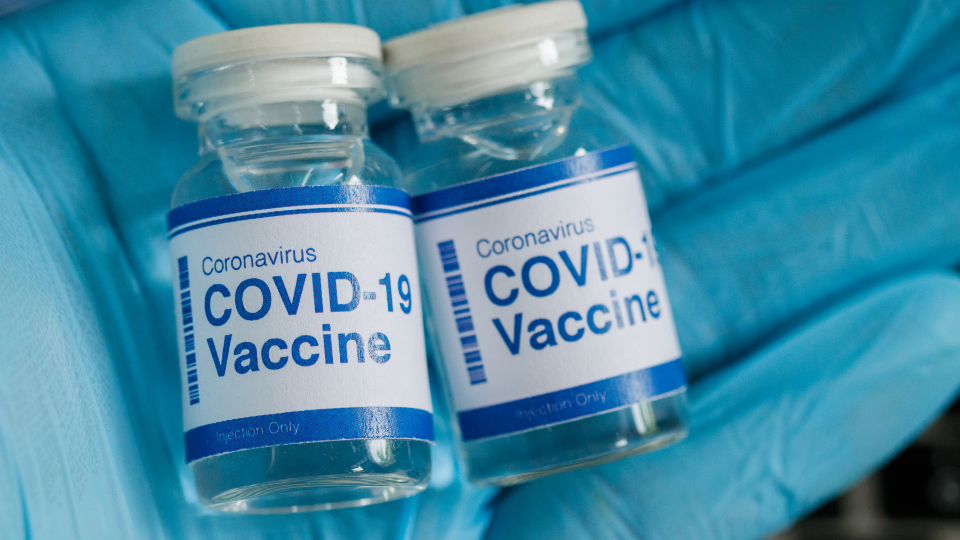The COVID-19 pandemic has transformed the way we approach healthcare, leading many to question where to seek treatment when symptoms arise. With the emergence of telehealth services and the ongoing availability of urgent care facilities, it's essential to understand when to visit an urgent care center for COVID-related concerns and how alternatives like telehealth can provide immediate assistance.
 Understanding COVID Symptoms
Understanding COVID Symptoms
COVID-19 symptoms can vary significantly from mild to severe, and recognizing them is crucial in determining the appropriate care. Common symptoms include fever, cough, shortness of breath, fatigue, and loss of taste or smell. However, some individuals may experience gastrointestinal symptoms, headaches, or sore throat. It's important to note that symptoms can appear 2-14 days after exposure to the virus, making it essential to stay vigilant, especially if you've been in contact with someone who has tested positive.
When experiencing symptoms, it's important to assess their severity. Mild symptoms can often be managed at home, while severe symptoms, such as difficulty breathing or persistent chest pain, warrant immediate medical attention. This is where the decision to visit an urgent care center or utilize telehealth services becomes vital. Additionally, some individuals may experience "long COVID," where symptoms persist for weeks or even months after the initial infection, highlighting the need for ongoing monitoring and care.
When to Consider Urgent Care
Urgent care centers are designed to handle non-life-threatening medical issues that require immediate attention. If you are experiencing moderate symptoms of COVID-19, such as a persistent cough or moderate fever, an urgent care facility can provide testing and treatment options. They can also assist with managing symptoms and provide guidance on next steps. Moreover, many urgent care centers are equipped to perform rapid COVID-19 tests, allowing for quicker diagnosis and peace of mind.
However, if symptoms escalate or if you have underlying health conditions that may complicate COVID-19, it’s advisable to seek care from a hospital or emergency room. Understanding the distinction between urgent care and emergency services is crucial for your health and safety. For example, if you experience confusion, bluish lips or face, or an inability to wake or stay awake, these are signs that you should seek emergency medical help immediately.
Benefits of Telehealth Services
For many, telehealth services offer a convenient and efficient alternative to in-person visits. Platforms like Doctronic provide access to AI-powered healthcare, allowing patients to receive immediate medical advice without leaving their homes. This can be particularly beneficial for those with mild symptoms who may not require urgent care but still seek guidance. Telehealth can also help reduce the burden on healthcare facilities, which may be overwhelmed during peak infection periods.
With Doctronic, patients can engage in a free AI doctor visit, where they can discuss symptoms and receive recommendations based on the latest peer-reviewed medical research. This approach not only saves time but also reduces the risk of exposure to COVID-19 in crowded waiting rooms. Furthermore, telehealth services can facilitate follow-up consultations, allowing healthcare providers to monitor your recovery and adjust treatment plans as necessary, ensuring a comprehensive approach to your health during these challenging times.
Testing for COVID-19
Testing is a critical component of managing COVID-19, and understanding where to get tested is essential. Urgent care centers typically offer COVID-19 testing, which can provide results within hours. This is particularly useful for individuals experiencing symptoms or those who may have been exposed to someone with COVID-19. Additionally, many pharmacies and community health centers have also begun to offer testing services, expanding access for individuals who may not have immediate access to urgent care facilities. This increase in testing locations is crucial for early detection and containment of the virus, helping to reduce transmission rates in the community.
However, if you are unsure whether to get tested or what type of test you need, telehealth services can help clarify your options. By consulting with an AI doctor at Doctronic, you can receive personalized advice on whether testing is necessary based on your symptoms and exposure history. This service not only provides guidance on testing but can also assist in managing your health by offering recommendations for follow-up care or preventive measures, ensuring that you have a comprehensive understanding of your health status.
Types of COVID-19 Tests
There are primarily two types of COVID-19 tests: viral tests and antibody tests. Viral tests, which include PCR and rapid antigen tests, are used to determine if you are currently infected with the virus. Antibody tests, on the other hand, can indicate if you have had a past infection. It's important to understand the differences between these tests; while viral tests are critical for diagnosing active infections, antibody tests can provide insight into your immune response and potential past exposure to the virus.
Urgent care centers typically offer viral testing, which is the most relevant for individuals showing symptoms. It's important to note that testing availability may vary by location, and telehealth platforms can help direct you to the nearest testing site or provide at-home testing options. Furthermore, as the pandemic evolves, new testing technologies are being developed, including at-home kits that allow individuals to collect samples and send them to a lab for analysis. This innovation not only enhances convenience but also encourages more people to get tested, thereby playing a vital role in public health efforts to monitor and control the spread of COVID-19.
Managing COVID-19 Symptoms at Home
For many individuals, COVID-19 symptoms can be managed effectively at home. If you are experiencing mild symptoms, it is crucial to rest, stay hydrated, and monitor your condition closely. Over-the-counter medications can help alleviate symptoms such as fever and body aches. Additionally, incorporating warm teas, broths, and honey can soothe a sore throat and provide comfort. It's also beneficial to maintain a balanced diet rich in vitamins and minerals, as this can support your immune system during recovery.
In such cases, utilizing telehealth services can provide valuable support. With Doctronic, patients can receive ongoing guidance and symptom management advice from an AI doctor, ensuring they have access to the latest medical information without the need for an in-person visit. These services often include virtual check-ins, where healthcare professionals can assess your symptoms and suggest personalized care plans. This accessibility can significantly reduce anxiety, as patients feel more connected and informed about their health status.
When to Seek Emergency Care
While many COVID-19 cases can be managed at home, it's essential to recognize when to seek emergency care. Symptoms that require immediate attention include difficulty breathing, persistent chest pain, confusion, inability to wake or stay awake, and bluish lips or face. It is important to remember that some individuals may experience a rapid deterioration in their condition, so staying vigilant is key. Keeping a list of your symptoms and any changes can help healthcare providers make informed decisions about your care.
If you experience any of these severe symptoms, it is crucial to call emergency services or go directly to the nearest hospital. In such situations, urgent care may not be equipped to handle the severity of your condition, making emergency care the best option. Furthermore, having a plan in place for transportation can save valuable time; whether it's arranging for a friend or family member to drive you or knowing the quickest route to the hospital, it can make a significant difference in critical moments. Being prepared can alleviate some of the stress associated with sudden health changes, allowing you to focus on getting the care you need.
COVID-19 Vaccination and Its Importance
The introduction of COVID-19 vaccines has been a significant milestone in managing the pandemic. Vaccination can help reduce the severity of symptoms and the risk of hospitalization if one contracts the virus. It is essential to stay informed about vaccination options and to ensure that you and your loved ones are vaccinated. Vaccines work by training the immune system to recognize and combat the virus, which not only protects individuals but also contributes to community immunity. This collective protection is vital in reducing the overall spread of the virus, especially among vulnerable populations who may not be able to receive the vaccine due to health conditions.
For those who have questions about the vaccine or are experiencing side effects, telehealth services can provide valuable information. Doctronic can offer guidance on vaccine-related concerns, ensuring that individuals receive accurate and timely information. Additionally, these services can assist in scheduling vaccinations and provide reminders for booster shots, which are essential for maintaining immunity over time. With the convenience of telehealth, individuals can access healthcare professionals from the comfort of their homes, making it easier to address any hesitations or misconceptions about the vaccination process.
 Staying Informed About Variants
Staying Informed About Variants
As the pandemic continues to evolve, new variants of the virus have emerged, raising concerns about transmissibility and vaccine effectiveness. Staying informed about these variants is crucial for making informed healthcare decisions. Variants such as Delta and Omicron have shown the ability to spread more easily and may partially evade immunity from previous infections or vaccinations. This underscores the importance of ongoing research and surveillance to monitor these changes in the virus and adjust public health strategies accordingly.
Telehealth services can provide updates on the latest research and recommendations regarding COVID-19 variants, helping individuals understand how these changes may impact their health and vaccination strategies. Furthermore, these platforms often share insights on the effectiveness of vaccines against specific variants, which can empower individuals to make informed choices about booster shots or additional preventive measures. By staying connected to reliable sources of information, individuals can better navigate the complexities of the pandemic and contribute to the collective effort of controlling the virus's spread.
Telehealth or Urgent Care? Making the Right Call for COVID-19
Deciding whether to visit an urgent care center for COVID-19 symptoms involves assessing the severity of symptoms and understanding available healthcare options. While urgent care can provide immediate assistance for moderate symptoms, Doctronic offers a convenient alternative for those with mild symptoms or questions about their health.
By utilizing its services, individuals can receive personalized medical advice and support without the need for in-person visits, reducing the risk of exposure to COVID-19.
Experience the Future of Personalized Healthcare with Doctronic
As you navigate your health during these uncertain times, remember that Doctronic is here to provide you with immediate, AI-powered medical advice tailored to your unique needs. Our cutting-edge technology offers the fastest, most personal, and smartest healthcare experience, all from the comfort of your home. With over 10 million satisfied users, we're confident that you'll appreciate the convenience and accuracy of our free AI doctor visits. Don't wait in line or risk unnecessary exposure; talk to an AI Doctor now, for free, and experience primary care that's always there for you, 24/7, in all 50 states.



 Understanding COVID Symptoms
Understanding COVID Symptoms Staying Informed About Variants
Staying Informed About Variants